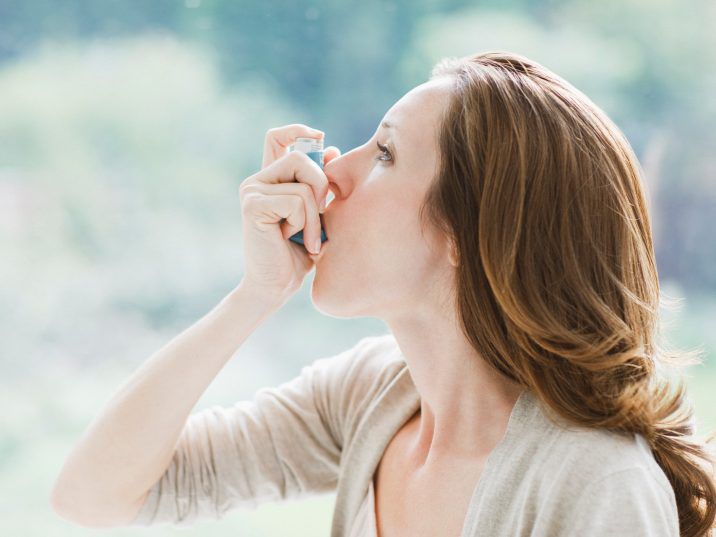You are here
Home 🌿 Medical Cannabis News 🌿 Can cannabis inhalers be effective treatment for chronic pain? 🌿Can cannabis inhalers be effective treatment for chronic pain?

Marijuana’s therapeutic effects for chronic pain patients have been shown. Cannabis has been shown to help reduce inflammation and muscle pain and ease neuropathic pain, as well as assist pain patients achieve a better night’s sleep. Dosing, on the other hand, is far from standardized.
A 2018 study suggested that three puffs a day from an inhaler would keep the pain away. Meanwhile, a study from earlier this year reported that 70 per cent to 90 per cent of legal cannabis products contain THC levels too strong for effective, long-term pain relief. Now, a new clinical trial may offer more rigorous answers in treating complex pain conditions.
A study led by a team of Israeli scientists, published earlier recently in the European Journal of Pain, found precise doses of THC administered via inhaler were effective in reducing pain in neuropathy patients. The randomized placebo-controlled study divided 27 chronic pain patients into three groups: One group received a 1 mg THC dose, the second was given a 0.5 mg THC dose and the third had a placebo.
“Both doses, but not the placebo, demonstrated a significant reduction in pain intensity compared with baseline and remained stable for 150 minutes,” the researchers wrote. “The 1 mg dose showed a significant pain decrease compared to the placebo. Adverse events were mostly mild and resolved spontaneously. There was no evidence of consistent impairments in cognitive performance.”
One of the biggest results, researchers noted, was that this method could assist with individualized medical cannabis prescriptions for patients in the future.

Previous clinical trials have also tested metered-dose cannabis inhalers as a future tool in medicinal settings. / Photo: iStock / Getty Images Plus iStock / Getty Images Plus
“This feasibility trial demonstrated that a metered-dose cannabis inhaler delivered precise and low THC doses [that] produced a dose-dependent and safe analgesic effect in patients with neuropathic pain/complex-regional pain syndrome (CRPS),” the study found. “Thus, it enables individualization of medical cannabis regimens that can be evaluated pharmacokinetically and pharmacodynamically by accepted pharmaceutical models.”
Previous clinical trials have also tested metered-dose cannabis inhalers as a future tool in medicinal settings. Data from these clinical trials showed novel inhaler devices reduced pain symptoms while displaying minimal adverse effects.
This research could prove vital for administering THC doses to hospitalized patients, because, as a 2019 clinical trial found, combustible cannabis is not acceptable for hospital settings.
420 Intel is Your Source for Marijuana News
420 Intel Canada is your leading news source for the Canadian cannabis industry. Get the latest updates on Canadian cannabis stocks and developments on how Canada continues to be a major player in the worldwide recreational and medical cannabis industry.
420 Intel Canada is the Canadian Industry news outlet that will keep you updated on how these Canadian developments in recreational and medical marijuana will impact the country and the world. Our commitment is to bring you the most important cannabis news stories from across Canada every day of the week.
Marijuana industry news is a constant endeavor with new developments each day. For marijuana news across the True North, 420 Intel Canada promises to bring you quality, Canadian, cannabis industry news.
You can get 420 Intel news delivered directly to your inbox by signing up for our daily marijuana news, ensuring you’re always kept up to date on the ever-changing cannabis industry. To stay even better informed about marijuana legalization news follow us on Twitter, Facebook and LinkedIn.




